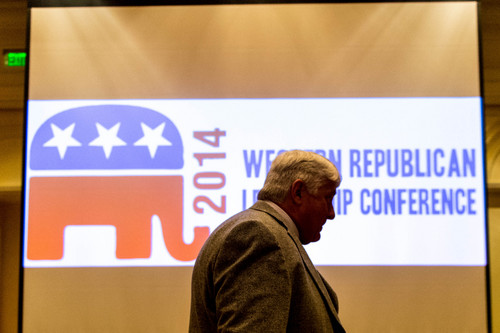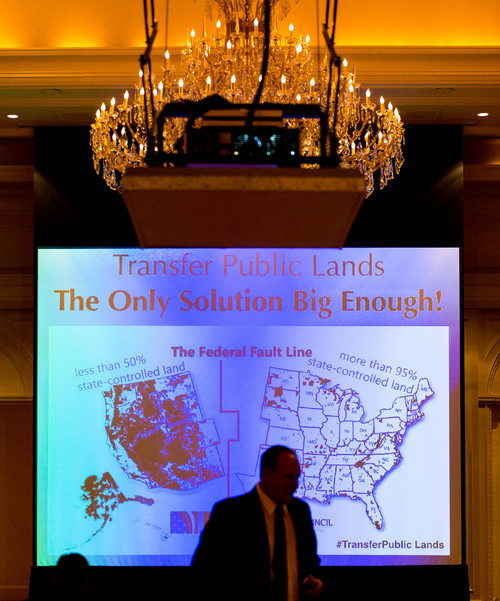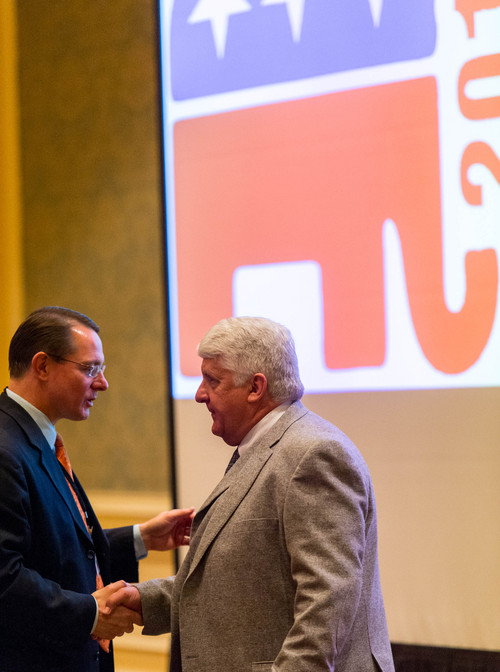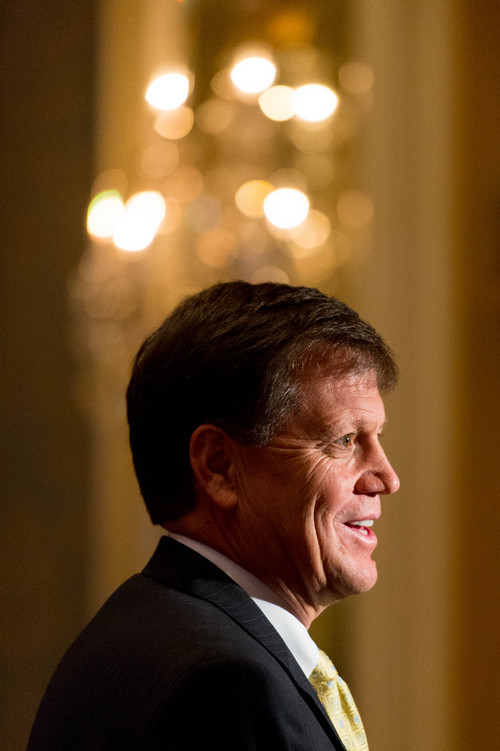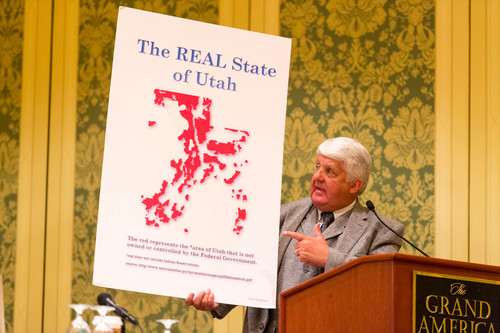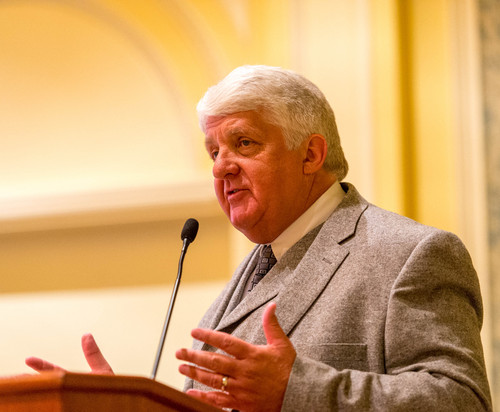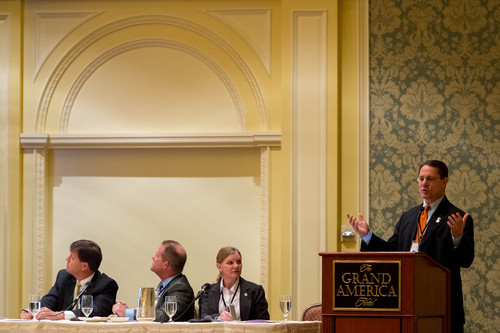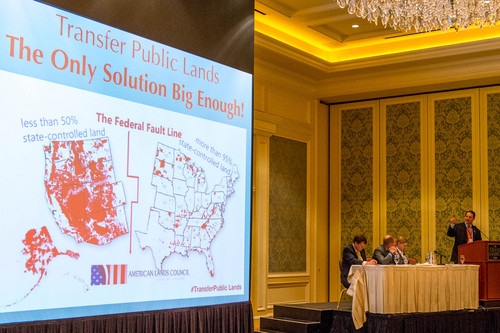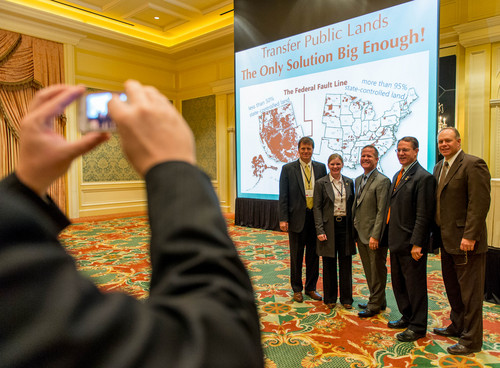This is an archived article that was published on sltrib.com in 2014, and information in the article may be outdated. It is provided only for personal research purposes and may not be reprinted.
Almost universally, Utah's top political leaders hold a deep-seated frustration with federal land management and yearn for more control, but there appears to be a big gap in strategies of how they would get there.
Should Utah's rural areas strike a deal creating vast new tracts of wilderness in exchange for setting aside areas for mining and other commercial development ? That's the path U.S. Rep. Rob Bishop, R-Utah, is traveling down with Utah's eastern counties.
Or, should Utah band together with its neighbors, like Nevada and Montana, to demand the federal government transfer control of lands to states and, if Congress refuses — which appears likely for the time being — launch a major court fight. That's the strategy Utah state Rep. Ken Ivory, R-West Jordan, is championing.
Bishop and Ivory held back-to-back panels at the Western Republican Leadership Conference in Salt Lake City on Friday, and while they share some common frustrations and goals, it's unclear whether they will be able to mesh their efforts.
Ivory calls his strategy, which is based on past federal land transfers in Eastern states, "the only solution big enough" to solve the problem. And when asked by The Salt Lake Tribune if he wants to see Bishop's negotiations turn into legislation and ultimately a new law, he struggled to come up with a clear answer.
"There is a coordination effort we are still working on with Congressman Bishop and the governor," said Ivory, who works for the American Lands Council. "I think the work he is doing is fairly preliminary."
It's not that preliminary. Bishop, who leads a congressional subcommittee that oversees public lands, has held more than 100 meetings with green groups, oil and gas companies and county leaders. Gov. Gary Herbert has also endorsed Bishop's efforts.
Bishop, a former Utah House speaker, said he's "kind of proud" of the harder line that the state Legislature has taken on the issue in recent years, which includes an Ivory-led bill demanding that the federal government transfer ownership of tens of millions of acres to Utah by the end of 2014.
And the congressman believes his plan complements that effort, creating a path to show the nation that the state can successfully and responsibly manage these desert lands.
"The part I'm trying to do is to allow the state to illustrate that they can actually run this stuff and do it better than the federal government," he said before his panel on Friday.
Bishop's negotiations are similar to those led by former Sen. Bob Bennett, culminating in the 2009 Washington County Lands Bill. That example shows that a compromise solution can lead to a new law, but Ivory noted that Washington County officials are not as excited about the agreement as they were when President Barack Obama signed it into law.
"Things we thought were taken care of in our lands bill are resurfacing," said Washington County Commissioner Alan Gardner, who attended Friday's panels. "We are pretty disappointed in some of those issues."
He had hoped the compromise bill would have ended decades-old debates on wilderness and grazing, but said that hasn't happened. Gardner considers Bureau of Land Management plans to add new Areas of Critical Environmental Concern, as a backdoor way to lock up acres as wilderness.
Bishop has heard the frustrations too and he said as a result he'll need tighter legislative language, which he thinks can be worked out by vetting his proposal in public hearings, something that didn't take place with the Washington County legislation.
Gardner urges Utah's eastern counties, like Uintah, Emery and San Juan, to dive into the details because "squishy language comes back to bite you."
"The ideal situation would be to have the states in control and not even have the feds involved," he said, adding he believes it's possible to persuade the government to dispose of federal lands. He's seen the conversation elevated nationally by the work done in Utah, and at the same time, he says if Western states don't capitalize on this effort, he worries that nothing will change.
"I think this is a real unique opportunity. We've got the momentum started," Gardner said. "But if it doesn't happen now, it is not going to happen."
Twitter: @mattcanham


